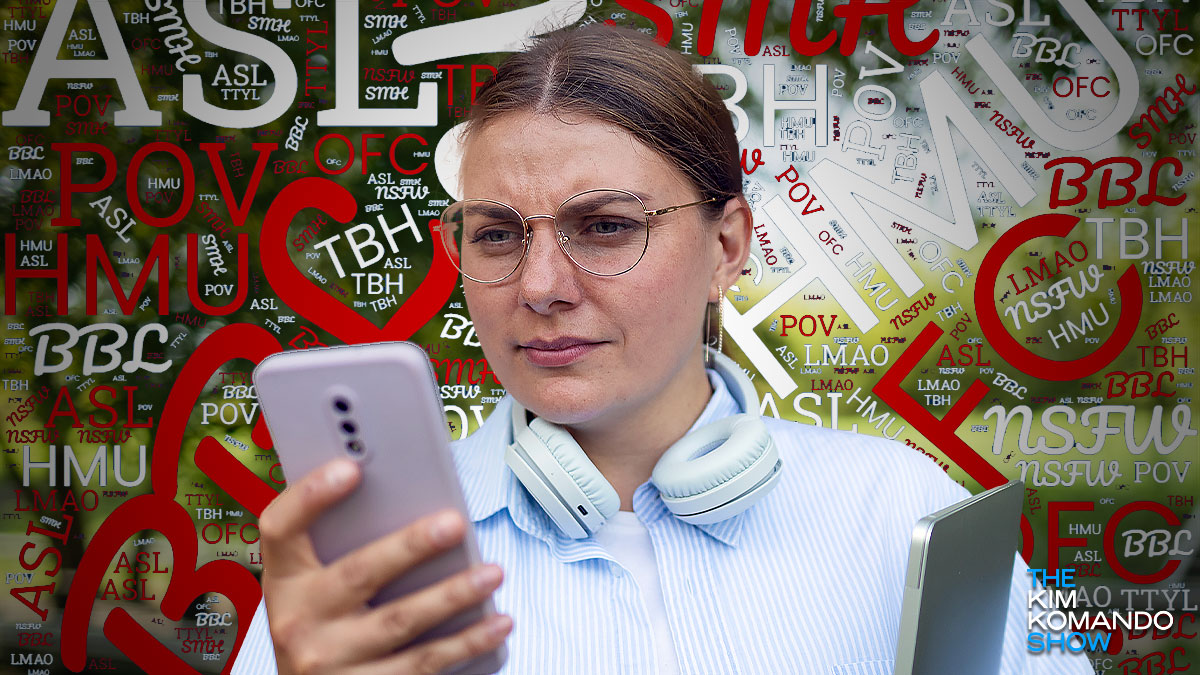A few years ago, a family member posted on Facebook that he had been diagnosed with a terminal illness. My mother replied with LOL. She thought that meant “lots of love,” not “laughing out loud.” She was so embarrassed.
OMG, here comes another text or post filled with abbreviations you have to pretend to know. You can try to LOL your way out of the convo.
Instead of saying WTF, check out this cheat sheet of the 10 most confusing acronyms — and some science behind why we use them. You’ll definitely want to save this one for L8R.
U R A1, BFF? ROFL, JK, SRSLY, B MY BFF!
Language learning platform Preply looked at 49 of the most commonly used abbreviations and discovered which ones Americans searched the most. Have any of these stumped you, too?
- SMH: Shaking my head
- POV: Point of view
- TBH: To be honest
- ASL: Age, sex, location (or “as hell” with the younger crowd)
- BBL: Brazilian butt lift or be back later
- HMU: Hit me up
- NSFW: Not safe for work
- LMAO: Laughing my @ss off
- OFC: Of course
- TTYL: Talk to you later
SMH racked up more than 100,000 monthly searches over the last two years. POV confused 70,000 fine folks a month.
Btw, here’s a breakdown of that heading above:
- U R: You are
- A1: Top quality or excellent
- BFF: Best friends forever
- ROFL: Rolling on the floor laughing
- JK: Just kidding
- SRSLY: Seriously
- B MY BFF: Be my best friend forever
Sure, abbreviations help us communicate much faster. They’ve also helped create new words and phrases, like FOMO (fear of missing out) and YOLO (you only live once).
Is it making us dumber?
Some say acronyms, abbreviations and even emojis have led to a decline in spelling and grammar skills. Eh, if you want to blame anything for that, it’s autocorrect.
Still, they’re relatively informal. At a more buttoned-up workplace, leave the abbreviations at the proverbial door. Hint: If you think, “Hmm, should I send this?”… don’t. I think that applies to just about everything.
